2025届四川省成都市蓉城名校联盟高三第一次联考英语试题(PDF版,无答案)
文档属性
| 名称 | 2025届四川省成都市蓉城名校联盟高三第一次联考英语试题(PDF版,无答案) | 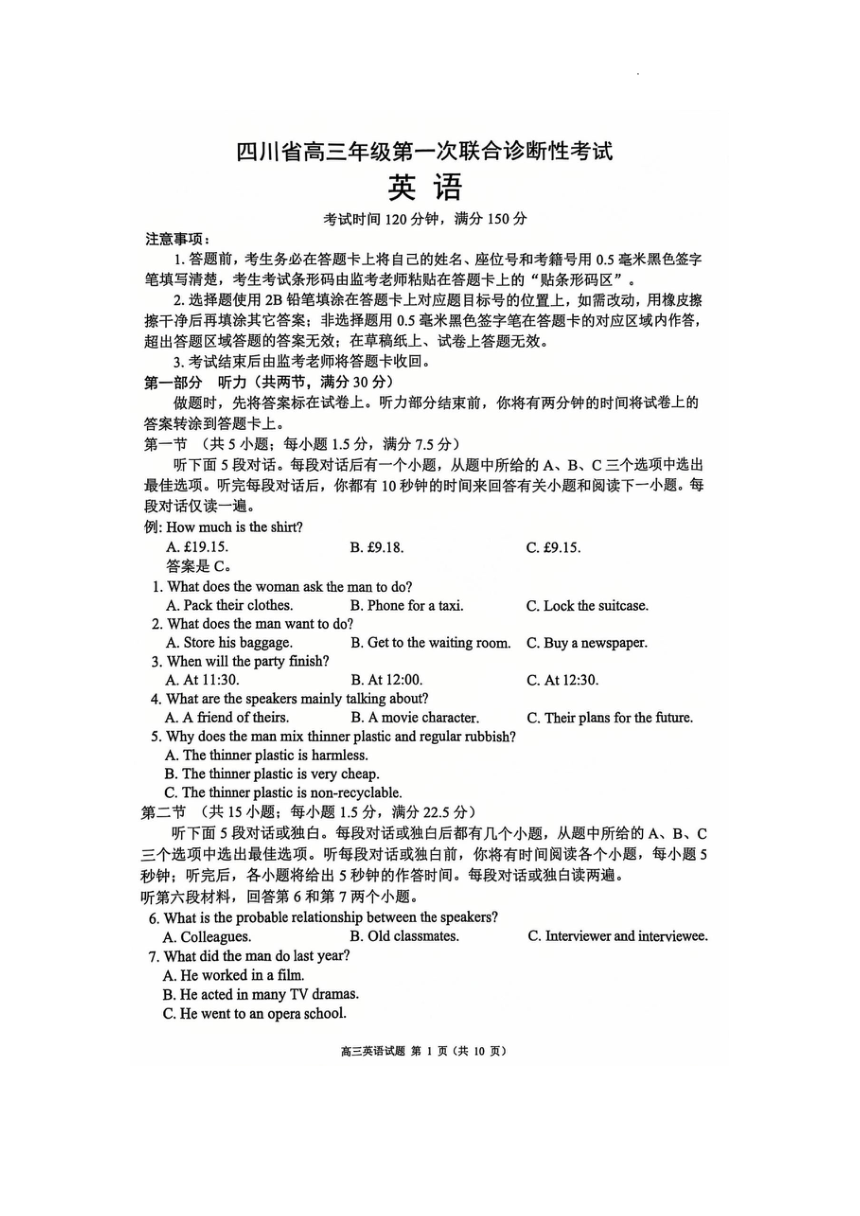 | |
| 格式 | docx | ||
| 文件大小 | 3.0MB | ||
| 资源类型 | 教案 | ||
| 版本资源 | 通用版 | ||
| 科目 | 英语 | ||
| 更新时间 | 2024-12-06 14:48:02 | ||
图片预览

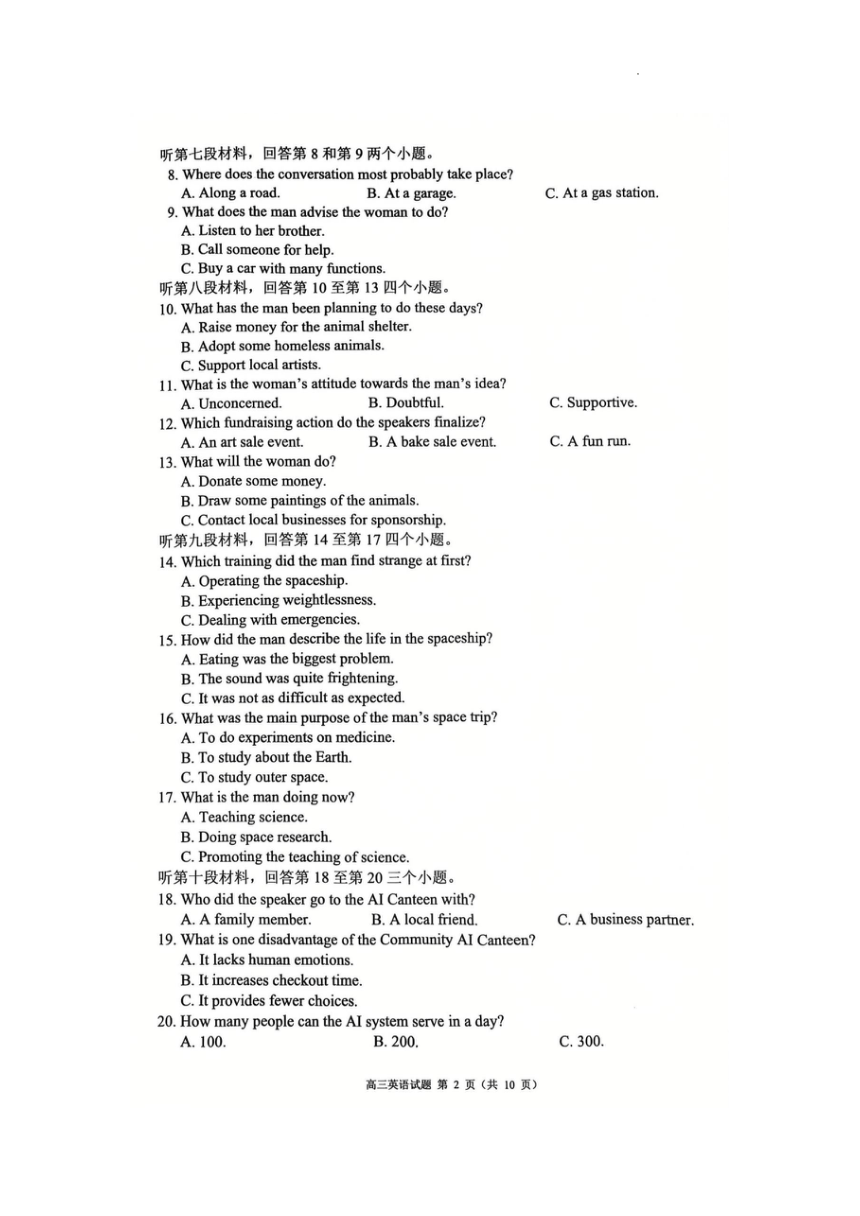
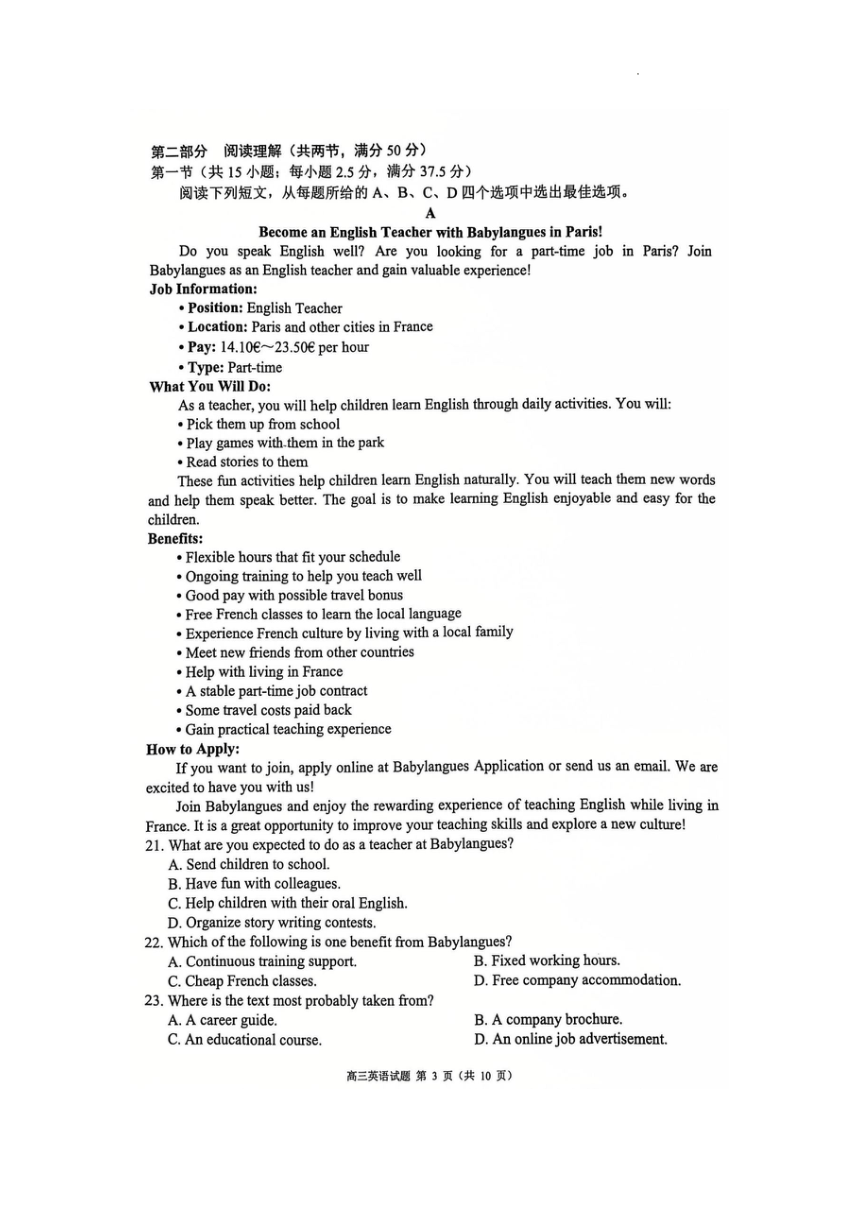
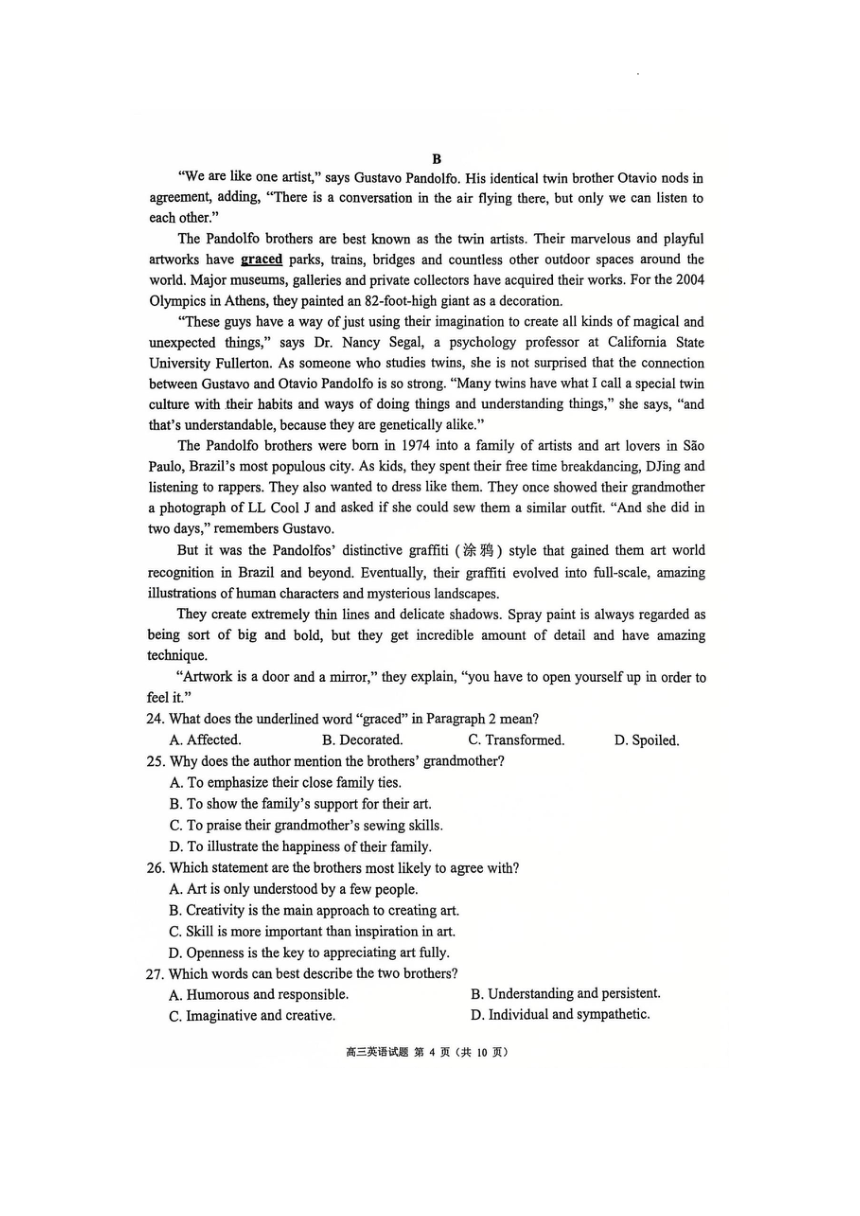
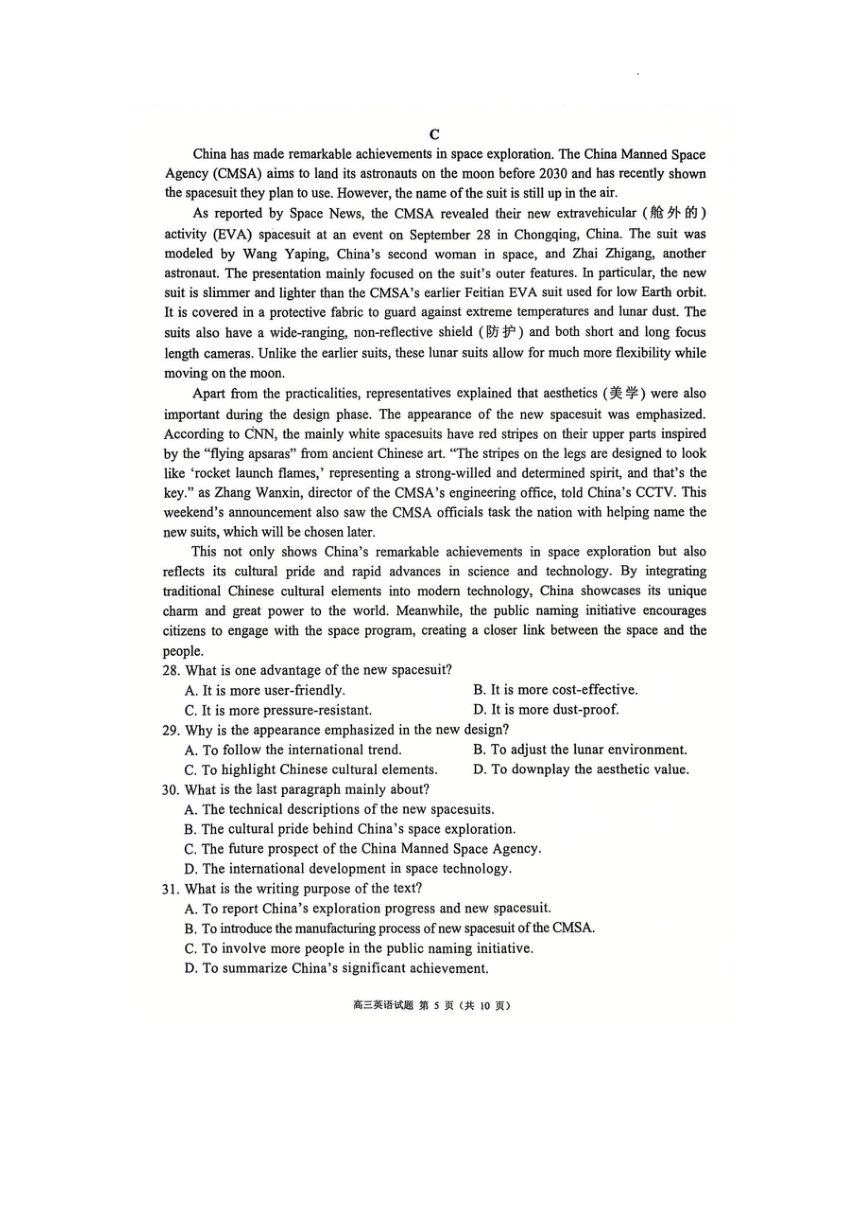
文档简介
(北京)股份有限公司
D
Reducing calorie intake may lead to a thinner body and a longer life.People usually think
it is because of weight loss and metabolic(新陈代谢)changes from eating less..But a recent
study on diet limits in laboratory animals challenges this traditional view.
To study how diet works,researchers observed 960 mice.These mice were genetically
different,like humans.Some mice had calorie-limited diets,some fasted regularly,
and others ate as they liked.It was found that diets with restricted calories caused weight loss
and metabolic changes.However,factors like immune health,genes,and the body's ability to
bear stress seem to better explain the link between fewer calories and a longer life.
Gary Churchill,a mouse researcher,said,"Metabolic changes are important,but they
don't directly lead to a longer life."Other scientists think this shows how complicated the
body's response to calorie reduction.
Cutting calories by 40%made the mice live the longest on average.But fasting regularly
and less strict calorie limits also increased lifespan ()As is known,dieting mice have
positive metabolic changes such as less body fat and lower blood sugar.
However,the effects of diet limits on metabolism and lifespan didn't always go together.
Surprisingly,mice that lost the most weight on a low-calorie diet sometimes died younger than
those that lost less.This means that more than just metabolism affects how the body reacts to
fewer calories.Immune health and red-blood-cell function were important for a longer life.
Also,the body's overall ability to handle stress was important.
The findings may change how scientists think about diet limits in humans.In a human trial
of a low-calorie diet,researchers found that it reduced metabolic rates.But the mouse data
suggests that metabolic measures may only show "healthspan",not lifespan.Scientist Edmma
notes that the study needs more evidence and warns not to directly use mouse results for
humans,but he also admits that the study shows healthspan and lifespan are different.
32.How was the study conducted
A.By comparing mice with human beings.
B.By developing the feeding habits of mice.
C.By conducting experiment on different animals.
D.By adopting the controlled experiment method.
33.What surprising result does the study reveal
A.All mice live longer under diet restriction
B.Dieting mice have positive metabolic changes.
C.Regular fasting have little impact on the lifespan of mice
D.Mice with significant weight loss can have shorter lives.
34.What is Scientist Edmma's attitude toward the study
A.Cautious.
B.Critical.
C.Optimistic.
D.Uncaring.
35.What's the best title for the text
A.Metabolism:The Key to a Longer Life
B.Less Food,Longer Life:The Simple Solution
C.Diet and Lifespan:It's More than Metabolism
D.Calorie Restriction:Weight Loss and Metabolic Change
高三英语试题第6页(共10页)
D
Reducing calorie intake may lead to a thinner body and a longer life.People usually think
it is because of weight loss and metabolic(新陈代谢)changes from eating less..But a recent
study on diet limits in laboratory animals challenges this traditional view.
To study how diet works,researchers observed 960 mice.These mice were genetically
different,like humans.Some mice had calorie-limited diets,some fasted regularly,
and others ate as they liked.It was found that diets with restricted calories caused weight loss
and metabolic changes.However,factors like immune health,genes,and the body's ability to
bear stress seem to better explain the link between fewer calories and a longer life.
Gary Churchill,a mouse researcher,said,"Metabolic changes are important,but they
don't directly lead to a longer life."Other scientists think this shows how complicated the
body's response to calorie reduction.
Cutting calories by 40%made the mice live the longest on average.But fasting regularly
and less strict calorie limits also increased lifespan ()As is known,dieting mice have
positive metabolic changes such as less body fat and lower blood sugar.
However,the effects of diet limits on metabolism and lifespan didn't always go together.
Surprisingly,mice that lost the most weight on a low-calorie diet sometimes died younger than
those that lost less.This means that more than just metabolism affects how the body reacts to
fewer calories.Immune health and red-blood-cell function were important for a longer life.
Also,the body's overall ability to handle stress was important.
The findings may change how scientists think about diet limits in humans.In a human trial
of a low-calorie diet,researchers found that it reduced metabolic rates.But the mouse data
suggests that metabolic measures may only show "healthspan",not lifespan.Scientist Edmma
notes that the study needs more evidence and warns not to directly use mouse results for
humans,but he also admits that the study shows healthspan and lifespan are different.
32.How was the study conducted
A.By comparing mice with human beings.
B.By developing the feeding habits of mice.
C.By conducting experiment on different animals.
D.By adopting the controlled experiment method.
33.What surprising result does the study reveal
A.All mice live longer under diet restriction
B.Dieting mice have positive metabolic changes.
C.Regular fasting have little impact on the lifespan of mice
D.Mice with significant weight loss can have shorter lives.
34.What is Scientist Edmma's attitude toward the study
A.Cautious.
B.Critical.
C.Optimistic.
D.Uncaring.
35.What's the best title for the text
A.Metabolism:The Key to a Longer Life
B.Less Food,Longer Life:The Simple Solution
C.Diet and Lifespan:It's More than Metabolism
D.Calorie Restriction:Weight Loss and Metabolic Change
高三英语试题第6页(共10页)
同课章节目录
